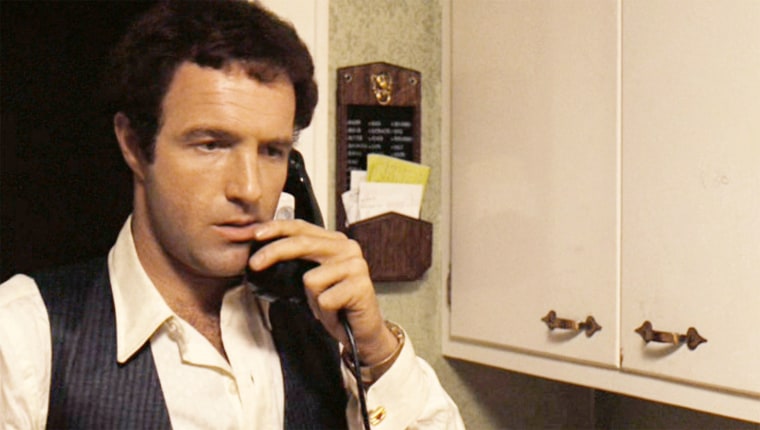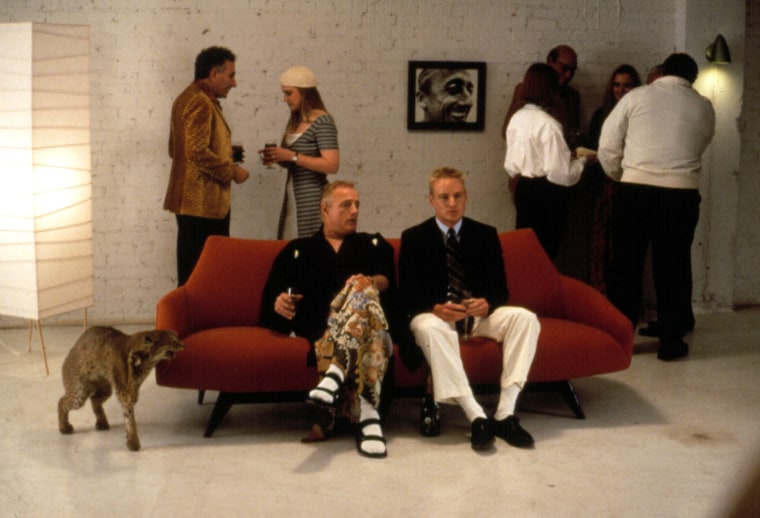Francis Ford Coppola's "The Godfather" is populated by some of the most cold-blooded killers in American cinema, but few characters are as vicious as Santino "Sonny" Corleone, a hot-headed mafia scion doomed by his vengeful recklessness.
The role turned James Caan into one of the signature stars of 1970s Hollywood, earning him an Academy Award nomination and defining him in public consciousness as a quintessential big-screen tough guy for the ages.
But the actor, who died Wednesday at 82, constantly found ways to subvert his image, showing up in projects that gently satirized Sonny's savage machismo and seeking out roles that softened his edge, showing audiences a surprisingly vulnerable side.

Caan, not unlike his mafia alter ego, refused to be underestimated.
Three years after "The Godfather" put Caan in the gangland pantheon, he starred opposite Barbra Streisand in "Funny Lady" (1975), portraying the theatrical showman Billy Rose. He showed a knack for self-deprecation in Mel Brooks' slapstick spoof "Silent Movie" (1976), playing a version of himself.
Michael Mann's rain-slicked crime thriller "Thief" (1981) might have seemed like familiar territory for Caan, but his character — a matter-of-fact safecracker — defied genre stereotypes. Caan underplayed the veteran thief Frank, presenting him as a craftsman who prided himself on diligent expertise instead of underworld swagger.
Sonny Corleone operated on pure animal instinct, but Frank was self-aware and articulate, a disciplined criminal whose seedy profession masked a cerebral streak.
"You are making big profits from my work, my risk, my sweat," Frank tells a Chicago Outfit boss (Robert Prosky) in one key scene. "But that is OK, because I elected to make that deal. But now, the deal is over. I want my end, and I am out."
"Misery" (1990), Rob Reiner's nerve-jangling adaptation of a Stephen King book, found Caan playing against type in more dramatic fashion. He played Paul Sheldon, the author of sappy romance novels who gets badly injured during a blizzard and finds himself confined to a bed, where he remains at the mercy of a deranged fan (Kathy Bates).
Sonny Corleone, possessed of a rage so intense he could fly off the handle in seconds, would never wind up as Annie Wilkes' captive, but Caan's character in "Misery" was not so lucky. "The role is a bit like that of a heroine in a 20th-century version of a 19th-century Gothic novel," The New York Times critic Vincent Canby wrote in his review. "Paul exists to be molested by others."
Caan is by no means the only Hollywood star to amass an eclectic filmography, but his later roles often seemed to be in direct conversation with his earlier work, tweaking expectations in sometimes delightful ways.

He played a parodic version of a "Godfather" goon in the screwball comedy "Honeymoon in Vegas" (1992), hamming it up with Nicolas Cage and Sarah Jessica Parker.
Wes Anderson cast him in his feature debut, "Bottle Rocket" (1996), as Mr. Henry, an oddball Texas landscaper and part-time criminal who hires a trio of incompetent slackers to rob a safe. The character was yet another thief, but the tone of the movie was absurdist, the stakes decidedly low. Caan gamely poked holes in his own gravitas.
Jon Favreau's "Elf" (2003), a family-friendly Christmas story, represented the culmination of Caan's against-type streak. He played a gruff and world-weary children's book publisher who gradually reveals himself to be a softie, charmed (and worn down) by his biological son, Will Ferrell's man-child from the North Pole.
Caan went on to appear in other films and television shows, but "Elf" was effectively his career capstone, endearing him to young parents and teenagers and kids.
"The Godfather" loomed over his body of work, but "Elf" is equally instructive in understanding his appeal. Caan could be a tough guy, yes, but he was so much more — and eager to prove it to anyone who may have doubted him.
